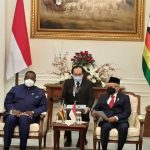The seller meanwhile was left with that cash which he could have used to buy other goods if they were able to or it simply remained in cash. Increasing capital gains tax to discourage short term investors will therefore make little difference to the buyer with excess Zimbabwe dollar liquidity. As we wrote in our last Investment Notes, equities are one of the few asset classes to own when you have an unstable monetary policy, wherever you are in the world.
Businesses have been accused of driving the parallel rate by chasing USD. Again they would need surplus Zimbabwe dollar liquidity to do so but thanks to the dual currency system that Zimbabwe has, there is far less need to do this since businesses can charge for their goods and services in US dollars; indeed a number of the businesses we speak to generate more USD than they need and hence invest the surplus into new plant and equipment.
Banks are being blamed for creating money and hence bank lending was stopped altogether. Banks however operate primarily in the Zimbabwe dollar sector which, as we have written before, is declining as a percentage of the economy to the extent that they no longer have the capacity to make meaningful loans to their clients given their own credit limits and lending criteria. Only if loans are guaranteed by Government would this argument fall away and as far as we know, Government only guarantees CBZ Agro loans. That in itself would add to money supply as the loans would not have been backed by deposits.
To suspend bank lending in an economy will simply cause it to grind to a halt and start declining, not what Government would want before the 2023 elections. Maintaining the dual currency system was a smart move by Government as to have done otherwise would have resulted in a collapse in the economy as we saw back in June 2019 when they did just that.
Indeed back in the winter of 2019, investors may recall that the newly introduced Zimbabwe dollar had finally found some stability until suddenly in August it collapsed for no apparent reason. We wrote about this episode in our October 2019 Notes where we highlighted that the RBZ had redeemed US$366m of Treasury bills for Zimbabwe dollars on behalf of Sakunda, money it had to create.
The Zimbabwe dollar moved from $11 to USD1 at the end of August to $20 a month later. Government panicked and introduced restrictions on Bureau de Change, Ecocash and introduced SI212/213 which imposed heavy fines on businesses that linked their prices to a foreign currency unit but all along it was the creation of Zimbabwe dollars that was the culprit. Then in June 2020, Government closed the ZSE for a month and suspended dual listed shares indefinitely as it was felt that these were driving speculation and the devaluation in the Zimbabwe dollar.
To resolve the problem of a devaluing currency, rising prices and a booming stock market would simply be to cease creating excess money in the first place since that is the financier behind these symptoms. As it is the US Federal Reserve is yet to blame itself for their high inflation preferring to accuse external factors such as the Ukraine War; the Swiss National Bank on the other hand may take a different view.
By John Legat, Chief Executive, Imara Asset Management (Zimbabwe) Ltd
(249 VIEWS)


